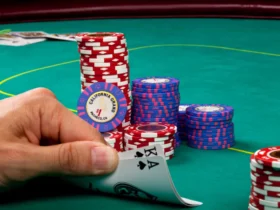The word Slot carries multiple meanings depending on your context—but in this article, we focus on slot gaming—the electronic or digital machines found in casinos and online platforms. Including the keyword Slot early in the article helps with SEO while still sounding natural.
We will explore the mechanics of slot games, their evolution, strategies, regulatory aspects, and the future of slot gaming. Let’s begin.
What Exactly Is a Slot?
A slot machine is a gaming device that produces randomized outcomes based on spinning reels with symbols. Players place bets and press a button or pull a lever to initiate a spin. If the symbols align in pre-specified winning combinations, payouts occur according to a payout table.
Originally mechanical with three reels and physical symbols, slots now predominantly operate via computer algorithms, using random number generators (RNGs) to determine results.
Historical Evolution
- Mechanical beginnings: The first slot machines—late 19th to early 20th century—utilized simple, mechanical reels and levers.
- Electromechanical era: Mid-20th century machines added electric motors, lights, and more complex features.
- Video slots: From the 1970s onward, video displays replaced mechanical reels in many machines.
- Online and mobile slots: With the rise of the internet and smartphones, slots have migrated online—accessible anywhere, anytime.
The concept evolved from “pay-tables, lever pulls, and coins” to immersive themes, bonus features, and interactive elements.
Core Mechanics Behind Slot Outcomes
A deep understanding of the inner workings helps to grasp why some spins win while most do not.
Random Number Generator (RNG)
At the heart of every modern slot is an RNG—a computer algorithm that continuously cycles through possible outcomes hundreds or thousands of times per second. When you hit “spin,” the RNG stops at a random combination and maps that to the visible reel symbols.
This ensures every spin is independent—past results don’t influence future spins.
Paylines, Reels, and Symbols
- Reels: Traditional slots had 3 reels; modern ones often have 5, 6, or even more.
- Paylines: These are the lines across which matching symbols produce wins. Some slots offer just a few paylines, others hundreds or thousands (e.g. “ways to win” slots).
- Symbols: Standard symbols, wilds, scatters, and bonus icons—each with distinct roles in triggering wins or bonus games.
- Payout table: Defines how much each symbol combination pays, factoring in bet size and line count.
Volatility (Variance) & Return to Player (RTP)
- Volatility: Measures risk. High volatility slots may pay less frequently but offer larger wins. Low volatility pays more often but smaller amounts.
- Return to Player (RTP): The theoretical percentage of wagered money paid back to players in the long run. For example, a slot with 96% RTP returns an average of $96 per $100 wagered (in theory over time, not per session).
Understanding volatility and RTP is crucial for managing expectations and bankroll.
Types and Themes of Slots
Slots come in countless variants designed to keep players engaged. Let’s examine the major types:
Classic Slots
These mimic the original three-reel machines, simple structure, minimal features—appealing to purists.
Video Slots
Video slots offer rich graphics, animations, bonus rounds, free spins, multipliers, and themed storytelling.
Progressive Jackpot Slots
These link a portion of each bet across machines (or across many online platforms) into a growing jackpot pool. One winning spin can yield enormous prizes.
MegaWays & Variants
These modern designs dynamically change the number of symbols per reel per spin, creating thousands of ways to win. They often include cascading wins, multipliers, and bonus mechanics.
Branded / Themed Slots
Built around movies, TV shows, sports, mythology, or pop culture. Themes and licensed content boost player engagement.
Strategies & Money Management
While no strategy can guarantee wins—because slot outcomes are random—smart approaches can help manage risk, extend playtime, and optimize enjoyment.
Bankroll Management
- Determine a fixed budget for your slot session—never chase losses.
- Use bets that are proportionate: don’t bet your entire bankroll in one spin.
- Choose volatility based on comfort: if you prefer steadier wins, pick low or medium volatility games.
Understand Paylines & Bets
- Many slots let you choose how many paylines or “ways” to activate. Activating all possible lines often improves your chance to hit combinations.
- Adjust your bet size depending on how many lines are active.
Leverage Bonuses & Free Spins
Casinos often offer free spins or bonus credits. Use them smartly—read the terms (wagering requirements, eligible games, max bet limits).
Quit While Ahead
If you hit a major win, consider walking away. Holding out for more increases risk of giving back winnings.
Track Your Session
Use notations: how many spins, high/low swings, triggers, etc. This helps you understand your own patterns and preferences.
Regulatory Landscape & Fairness
Because money is involved, the slot gaming industry is tightly regulated in many jurisdictions to ensure fairness, safety, and responsible play.
Licensing & Audits
Casinos and software providers often operate under licenses (e.g. from Malta, Gibraltar, Nevada, etc.). Independent testing labs—such as eCOGRA, iTech Labs—verify RNGs and RTPs.
Responsible Gaming Measures
Operators must provide tools: deposit limits, session timers, self-exclusion, reality checks. Ensuring fair play and preventing addiction is a crucial social responsibility.
Geographic Restrictions
Not every region allows online slots or casino gambling. Licensing and legal frameworks vary greatly across the USA and internationally.
Technology Trends Shaping Next-Generation Slots
Slots continue evolving, adopting new technologies to enhance realism, fairness, and engagement.
Blockchain & Provably Fair Slots
Using blockchain, certain systems allow players to verify the fairness of each spin cryptographically—thus increasing trust beyond traditional audits.
Virtual Reality (VR) & Augmented Reality (AR) Slots
Imagine walking into a virtual casino, pulling a lever, watching 3D reels spin around you. VR/AR offer deeper immersion and social interaction.
Skill-based Slots
To appeal to younger audiences or crossover players, some developers experiment with hybrid games—slots with small skill components that can influence outcomes marginally.
Mobile & Cross-Platform Compatibility
Most players access slots via smartphones. Developers optimize for responsive UI, lower data use, and seamless transitions across devices.
What Makes a Slot Stand Out?
With so many options, what qualities elevate a slot from average to memorable?
- Engaging theme and storytelling: Thematic consistency and narrative hooks draw players in.
- Innovative bonus mechanics: Cascades, wild transformations, “hot zones,” and interactive bonus rounds keep excitement fresh.
- Polished audiovisual design: Sound, animation, art style all matter.
- Balanced returns & volatility: Offering enough high-variance potential but also a fair long-term RTP fosters trust.
- Transparency & reputation: Reliable payouts and good reviews help distinguish premium slots from low-quality ones.
Challenges and Criticisms
No industry is perfect. Slot gaming faces several challenges and criticisms.
Gambling Addiction Risks
The ease of spinning fast and small bets can cloak how much money is spent. Responsible gaming tools must accompany product design.
Misleading Marketing
Some promotions exaggerate winning odds or obscure wagering requirements. Operators must avoid deceptive tactics.
Regulatory Pressure
Shifts in laws may restrict or ban certain slot formats. Developers must stay compliant or risk shutdowns.
Market Saturation
Thousands of new slots launch annually, making it hard for individual games to gain visibility. Innovation is essential, not just cloning themes.
Real-World Use Cases: How Players Approach Slots
- Casual play: Many enjoy slots as light entertainment—spinning for fun with small bets.
- Jackpot chasing: Some target progressive slots with big prize potential, accepting increased variance.
- Reward maximizers: Players focus on RTP, bonuses, and strategies to get the most out of promotions.
- Game reviewers & influencers: These professionals analyze slot mechanics, design trends, and player appeal to guide audiences.
FAQ
Q: Can I skill my way to winning at a slot?
No. Outcomes are randomized by the RNG. While you can manage your bets and choose volatility, you cannot outsmart chance.
Q: Is there a “hot” or “cold” slot?
That’s a myth. Each spin is independent. A machine doesn’t remember past results.
Q: How do I interpret RTP and volatility?
RTP shows the average return over time. Volatility shows how often versus how big wins occur. High volatility = rarer but bigger wins; low volatility = frequent smaller wins.
Q: Are online slots fair?
In regulated environments, yes—third-party auditors validate RNGs, and RTPs are published. Avoid unlicensed operators.
Q: Can I play slots for free before betting real money?
Yes, many platforms offer demo or “play for fun” modes so you can try mechanics without risk.
Q: What is the right bet size per spin?
A common rule is to risk 1–5% of your total bankroll per spin. That keeps you in the game longer and reduces bust risk.
Q: Do bonus spins always use the same RTP?
Not always. Sometimes free spins or bonus rounds have different weights or multipliers. Always read the game rules.
Q: What should I look for when choosing a slot game?
Look at:
- RTP (aim for high percentages, e.g. 95%+),
- Volatility suited to your style,
- Engaging features (bonuses, multipliers),
-
Reputation of the game provider.












